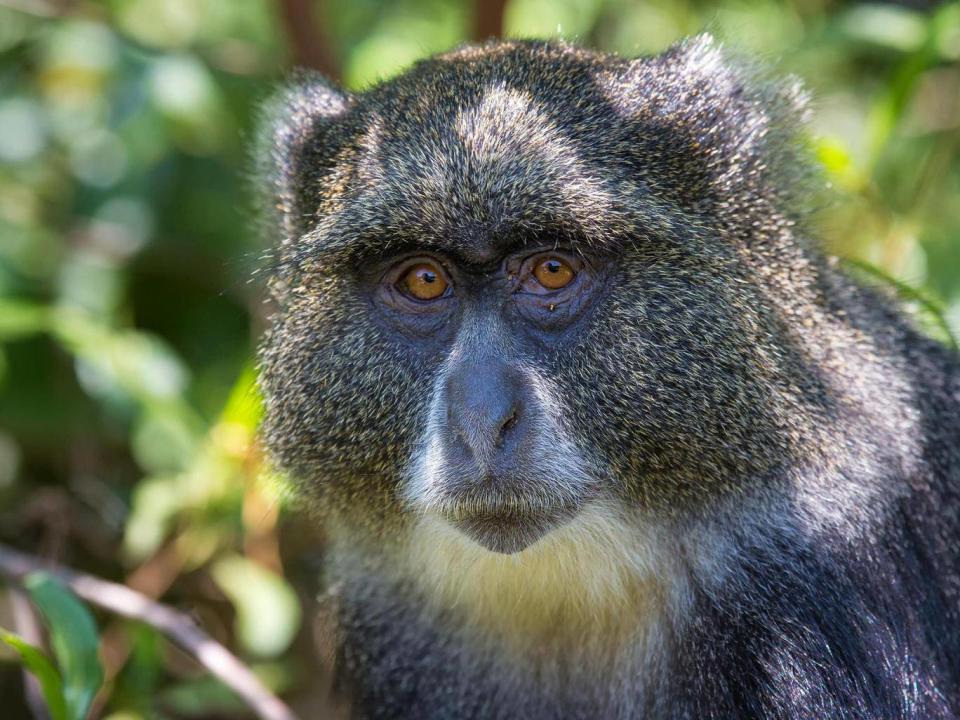Promiscuous monkeys discovered mating with other species for first time
When it comes to finding a partner, monkeys are not necessarily so picky they insist a mate comes from the same species.
New genetic research suggests that primates in Tanzania are so promiscuous they will happily cross the species divide.
The study shows red-tailed and blue monkeys living in Gombe National Park regularly get together – despite being entirely separate creatures with entirely different looks and social structures.
It is the first time that such cross-divide mating has been proven among guenon monkeys.
And it has resulted in a unique hybrid population, according to research published in the International Journal of Primatology.
“There's a lot of promiscuity taking place,” said study author Kate Detwiler, anthropology professor at Florida Atlantic University. “Red-tails are mating with blues, blues are mating with red-tails, and hybrids are mating with everyone.
“But we're just not seeing any negative consequences from these two very different species repeatedly mating and producing offspring on an on-going basis.”

She estimated the bizarre relationships had been going on for of years and she added that they may well have developed because the red-tailed females found the blues more exotic than their own species.
A mixed-sex society of red-tailed monkeys arrived in the region first and thrived, she said.. Male blue monkeys, she added, probably arrived later after being kicked out of their own groups on reaching sexual maturity.
“I kept coming back to the idea that if they are only supposed to mate with their own kind, then why did these red-tailed monkeys mate with the blue monkeys, especially if they had males of their own species around,” Prof Detwiler said. “The female red-tailed monkeys present as willing partners and they are not coerced or forced into copulation with blue monkeys.
“Apparently, some female red-tailed monkeys were attracted to novel males with different faces and welcomed the sexual advances.”
The research involved analysing DNA from the faeces of the primates.
Now Prof Detwiler believes studying how the two species have co-existed and merged could help in understanding hybridisation in general.
She said the society provides “an amazing laboratory in nature to help us answer many questions about how species boundaries are maintained."
She added: "This research is very timely because hybridization often occurs in response to environmental changes, as we are seeing with climate change and modified landscapes—it is nature's way to respond."

 Yahoo News
Yahoo News 
